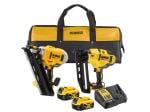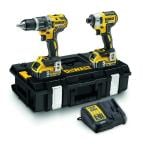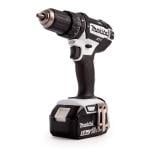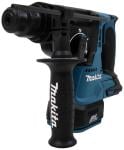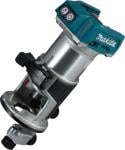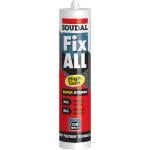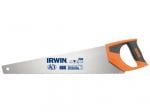Innovations in Battery Technology for Cordless Power Tools
Cordless power tools have transformed the way professionals and DIY enthusiasts approach various tasks. The convenience of unrestricted movement and the elimination of power cords have made these tools immensely popular. However, the performance and longevity of cordless power tools heavily depend on battery technology. In this article, we will delve into the latest innovations in battery technology that have revolutionized cordless power tools.
Introduction
Cordless power tools offer portability and flexibility, and the heart of their performance lies in the batteries they use. Over the years, various battery technologies have emerged, each with its own set of advantages and limitations. These advancements have not only extended battery life but also improved overall tool efficiency.
Lithium-Ion Batteries
Lithium-ion batteries are the most common choice for modern cordless power tools. They offer a high energy density, allowing tools to run longer on a single charge. These batteries have low self-discharge rates, retaining their charge when not in use.
Advantages and Limitations:
- Advantages: High energy density, lightweight, minimal memory effect, slow self-discharge.
- Limitations: Prone to overheating, potential fire risk if damaged or improperly charged.
Lithium-Iron Phosphate (LiFePO4) Batteries
LiFePO4 batteries are a variation of lithium-ion batteries known for their enhanced safety and longevity. They are less prone to overheating and thermal runaway, making them a safer option for power tools. Enhanced Safety and Durability: LiFePO4 batteries offer improved thermal stability, longer lifespan, and a higher number of charge cycles compared to traditional lithium-ion batteries.
Nickel-Cadmium (NiCd) Batteries
NiCd batteries were once the standard choice for cordless power tools, but they have become less common due to their environmental impact and memory effect. They can lose capacity if not fully discharged before recharging. Legacy Technology: While NiCd batteries are being phased out, they still find use in some older cordless tools. They are known for their durability and ability to withstand rough conditions.
Nickel-Metal Hydride (NiMH) Batteries
NiMH batteries offer a compromise between NiCd and lithium-ion batteries. They have a better energy density than NiCd batteries and are more environmentally friendly.
A Middle Ground: NiMH batteries are less prone to memory effects, have a higher energy density, and are relatively safer than NiCd batteries. However, they still fall short of the performance offered by lithium-ion batteries.
Emerging Technologies
Solid-State Batteries
Solid-state batteries are considered the future of battery technology. They replace liquid electrolytes with solid materials, resulting in improved energy density, safety, and lifespan.
Graphene-Based Batteries
Graphene, a highly conductive material, is being explored for use in batteries. Graphene-based batteries promise faster charging times, higher energy storage capacity, and longer cycle life.
Hydrogen Fuel Cells
While not yet widely used, hydrogen fuel cells have the potential to revolutionize cordless power tools. They produce electricity through a chemical reaction between hydrogen and oxygen, emitting only water vapour as a byproduct.
Conclusion
Advancements in battery technology have paved the way for more efficient and reliable cordless power tools. From the dominance of lithium-ion batteries to emerging technologies like solid-state batteries and hydrogen fuel cells, the future looks promising for tools that offer enhanced performance, safety, and sustainability. As technology continues to evolve, cordless power tools will continue to play a pivotal role in various industries, from construction to DIY projects.
FAQs
Can I use lithium-ion batteries interchangeably with other types in my cordless power tools?
No, different battery chemistries have different voltage and charging requirements. Always use the recommended battery type for your tool.
Are solid-state batteries available for cordless power tools?
While solid-state batteries are being developed, they are not yet widely available for consumer tools.
Are graphene-based batteries more expensive?
Graphene-based batteries are still in the research and development phase, so their cost is higher compared to current battery technologies.
Do hydrogen fuel cells offer longer runtime than lithium-ion batteries?
Hydrogen fuel cells have the potential for longer runtime due to the high energy density of hydrogen, but practical implementation is still being explored.
Can I retrofit an old NiCd-powered tool with a different battery type?
Converting a tool to use a different battery type is complex and may not yield the desired results. It's recommended to use the battery type specified by the manufacturer.


